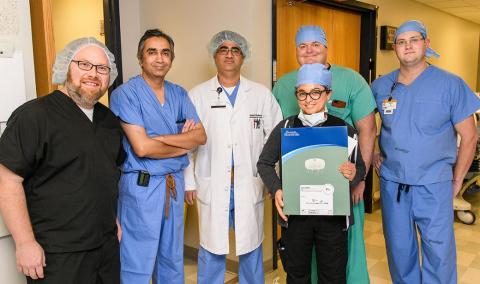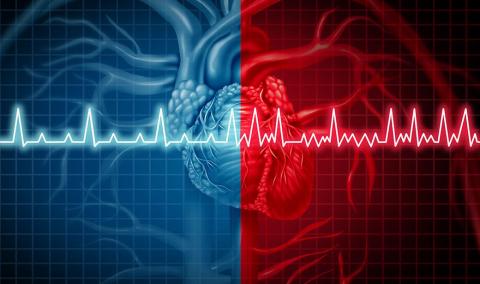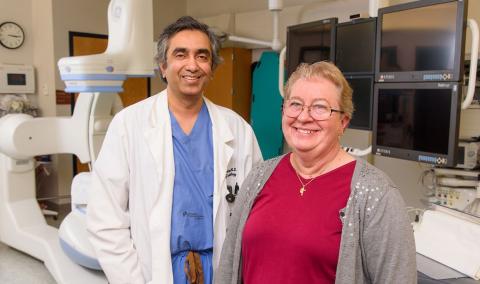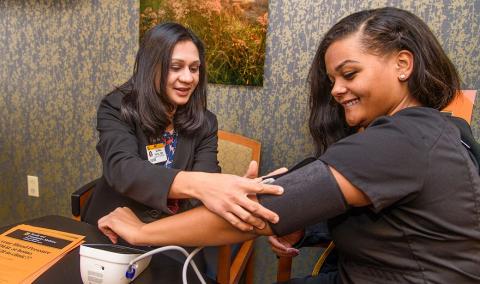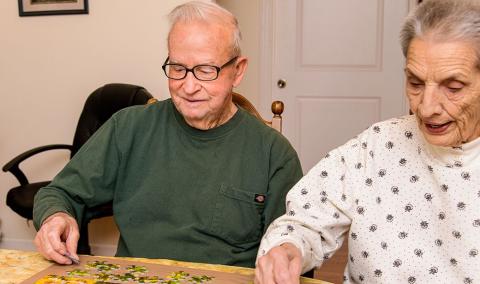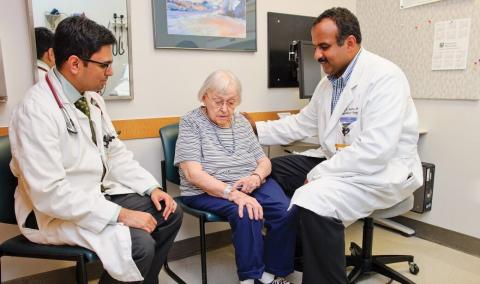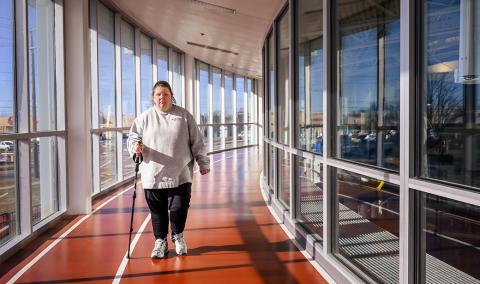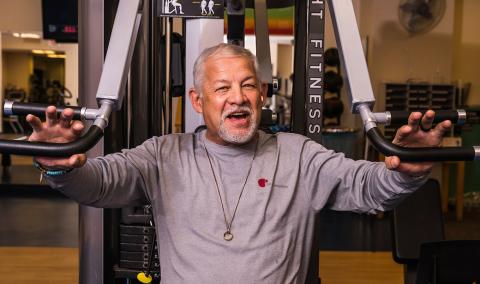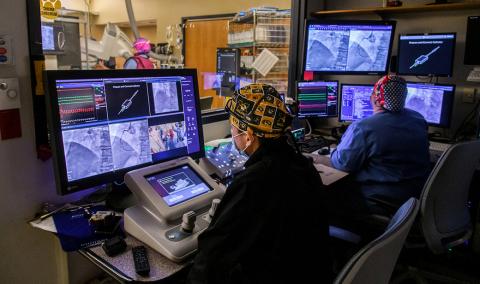Heart disease is the No. 1 cause of death in women, and more women than men die from heart disease each year, according to the American Heart Association.
Additionally, women have different risk factors and experience different symptoms than men due to heart disease. University of Missouri Health Care cardiologists are raising awareness of women’s heart health problems and helping women prevent heart disease.
At MU Health Care, we provide fast heart attack care for women and men. We help prevent damage to the heart by clearing blockages and stopping heart attacks in an average of just 47 minutes from the time you arrive at the hospital. This time is far faster than the national goal of 90 minutes and leads to better outcomes for our patients.
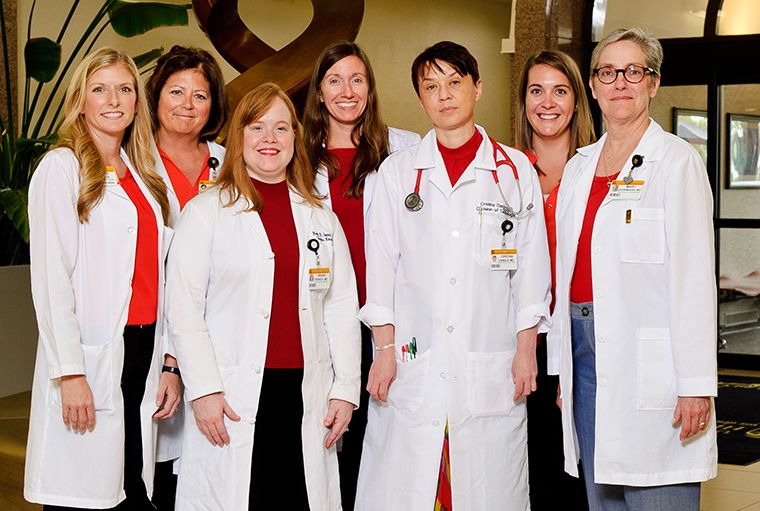
Risk factors for heart disease in women
All women should be aware of their potential risk factors for developing heart disease. Men and women share some risks factors of heart disease, including:
- Family history
- High blood pressure
- High cholesterol
- Lack of exercise
- Obesity
However, women may face additional risk factors like:
- A higher risk of mental stress and depression
- Low levels of estrogen after menopause
- Metabolic syndrome, a combination of issues that includes an increase in abdominal fat, high blood pressure, high blood sugar and high triglycerides
- Smoking, which raises the risk of heart disease for both men and women, but is a greater risk for women
Being aware of the unique risk factors in women can help you make healthy lifestyle changes to prevent heart disease. You should speak to your physician about your personal risk factors and the changes you can make to reduce your risk. The first steps toward a healthier heart for all women include getting regular exercise and quitting smoking.
Heart attack symptoms in women
Because women typically experience different, subtler heart disease symptoms than men, these symptoms may be overlooked or misdiagnosed. The most common cause of heart disease is the narrowing or blockage of coronary arteries, which can lead to heart attacks.
Most people know the classic symptoms of heart attack, including crushing chest pain and severe pain in one or both arms. However, women are more likely to have heart disease in smaller blood vessels, which cause different symptoms.
Although women can experience chest pain, it’s often not the most prominent symptom of a heart attack.
Heart attack symptoms in women are more likely to include:
- Lightheadedness or dizziness
- Nausea or vomiting
- Neck, shoulder, upper back or abdominal discomfort
- Profuse or abnormal sweating
- Shortness of breath
- Unusual fatigue
Because these symptoms usually are not associated with a heart attack, many women take longer to come to the hospital than men, resulting in more damage to the heart muscle. Therefore, women with the risk factors listed above should keep a close eye on their health through regular blood pressure and cholesterol screenings.
Learn more about Heart & Vascular Care at MU Health Care.



